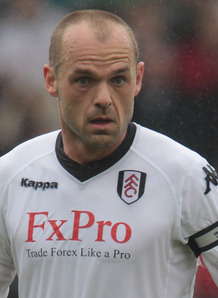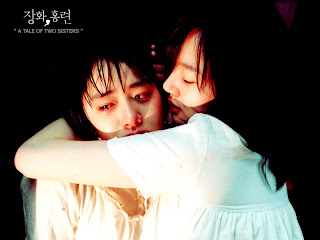Every football fan in England knows what a head-bandaged Terry Butcher looks like.
If Danny Murphy's recent comments inspire any debate, then it must be about the physical nature of the Premiership and every league beneath it. BBC football writer, Phil McNulty, restricted his response to tackles-and-injuries, failing to see the bigger picture: what the culture of watching and playing football really amounts to in this country. After all, Murphy did refer to the role played by the manager - the tactician and the motivator - in all of this. It is not impossible to watch both a leaderly and pretty midfield; just observe Di Matteo's West Brom or Poyet's Brighton and Hove Albion; or remember when elite luxuries were commanded by Petit, Butt and Hamann; then treat yourself to a book on the emergence of passing football from Scotland in the 1870s to Vienna to the River Plate. There is a common good for any standard or epoch that will prevail in what is a global game. Mistimed lunges, whatever the unknowable motivation of the perpetrator, are unacceptable and in too many cases unforgivable. What I am not arguing is that only homegrown players are culpable. But what has to be destroyed is the widespread masochistic assumption that we'll give the grit and they'll bring the flair.
The Blackburn Rovers goalkeeper, Paul Robinson, described Murphy's opinion as "irrelevant". Apart from the obvious relevance - we know flung studs have wrecked careers before football became a full-time profession - violent tackling is clearly this autumn's hot topic. In recent months, Ryan Shawcross, Lee Cattermole, Nigel De Jong, Karl Henry and Jack Wilshere have all been guilty, either of grievous bodily harm or of misinterpreting the speed of their working environment, their deadlines as it were. A player who has learned is John Obi Mikel, the Chelsea and Nigerian midfield player. We no longer wince or roar at his defensive interventions: he has already done his job by being in the right place at the right time, keeping shape. Mikel doesn't do Gerrard anymore: if deployed as a central midfielder, he doesn't find himself negligently out of position, forced to scamper across the pitch and throw himself into a tackle to the misguided applause of Anfield or Wembley crowds. The principal culprit for Clint Dempsey's equaliser in Rustenburg was not Robert Green but the Liverpool captain, who could not stop the American turn as slowly as a clock hand, twice, and get his shot away.
"You get managers sending teams out to stop other sides from playing, which is happening more and more. Stoke, Blackburn and Wolves, you can say they’re doing what they can to win the game, but the fact is that the managers are sending the players out so pumped up that inevitably there are going to be problems. The thing I think people miss is that it’s the managers who dictate what the players do and how they behave. If you have a manager in control of his team, who doesn’t allow these things to go on you have a more disciplined team.”
These were the well considered comments of an honest midfielder who has probably suffered from his nationality; I pity fans who do not think England would have retained possession and passed more penetratingly had such a playmaker made the cut for South Africa. Murphy is a signature, big-match performer. He scored for Liverpool against Manchester United in three one-nil victories in four seasons. And then there's his punditry, invariably smart, and it should be acknowledged with real alarm that Jamie Redknapp, Alan Shearer and Martin Keown are currently the official megaphones for our ex-players.
If Murphy made any mistake it was in naming three clubs: he should have named more. He can be proud, as publicly as he likes, of sharing responsibility for making Craven Cottage comely as well as homely. Fulham are an established Premiership club who can compete in Europe. They thrive on elegant, athletic football and a fine disciplinary record (1st last season, 3rd so far in 2010/11). This campaign, Blackpool and West Brom are not dissimilar. And then there are Stoke, Wolves, Blackburn, Bolton and Sunderland, probably more, who go on as ugly alternatives. Which is to say that people pay a lot of money to go and watch them kick opponents and scavenge for the second ball. However hard or conjectured it is to deconstruct the national game, where we can begin to catch up with superior cultures is off the ball. This way trickery on it does not mean putting bones at risk. Lengthy suspensions and fines for clubs will curb recklessness. It would be a breakthrough if more influential institutions than the FA, such as Opta and Sky, could publish and discuss data about dangerous tackling in relation to stylistic approach. We need to be factually clear.
During Blackpool vs. Mancester City on Ford Super Sunday, Andy Gray yet again revealed his inner coward. After a mistimed but harmless tackle, he sneered that this would get "the usual reprobates whinging". Hopefully the likes of Dean Ashton and Eduardo, the desecrated and the damaged, were not listening. And how I am happy for Ronaldo, the finest Brazilian forward in my two and a half decades, poorly protected by referees, who doesn't speak English and who wouldn't believe his hears if he could.
Danny Murphy is a fine example to young viewers and players. His comments evinced a bravery more important and more interesting than any Terry Butcher or John Terry self-portrait.
Danny Murphy is a fine example to young viewers and players. His comments evinced a bravery more important and more interesting than any Terry Butcher or John Terry self-portrait.





